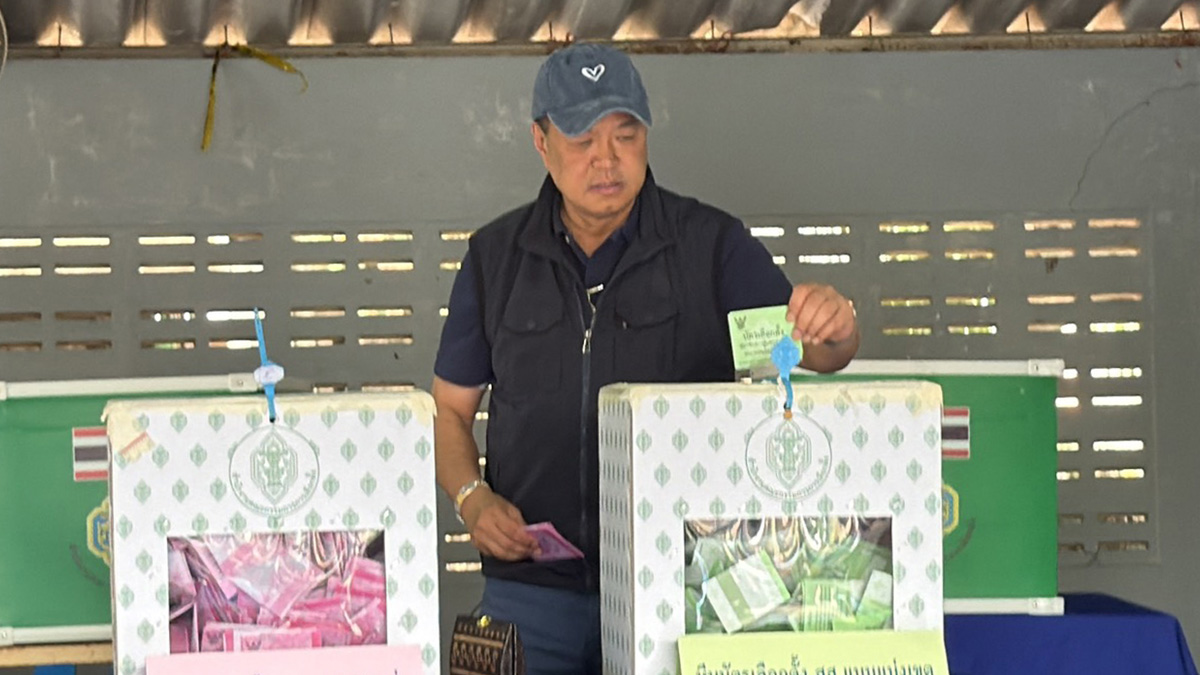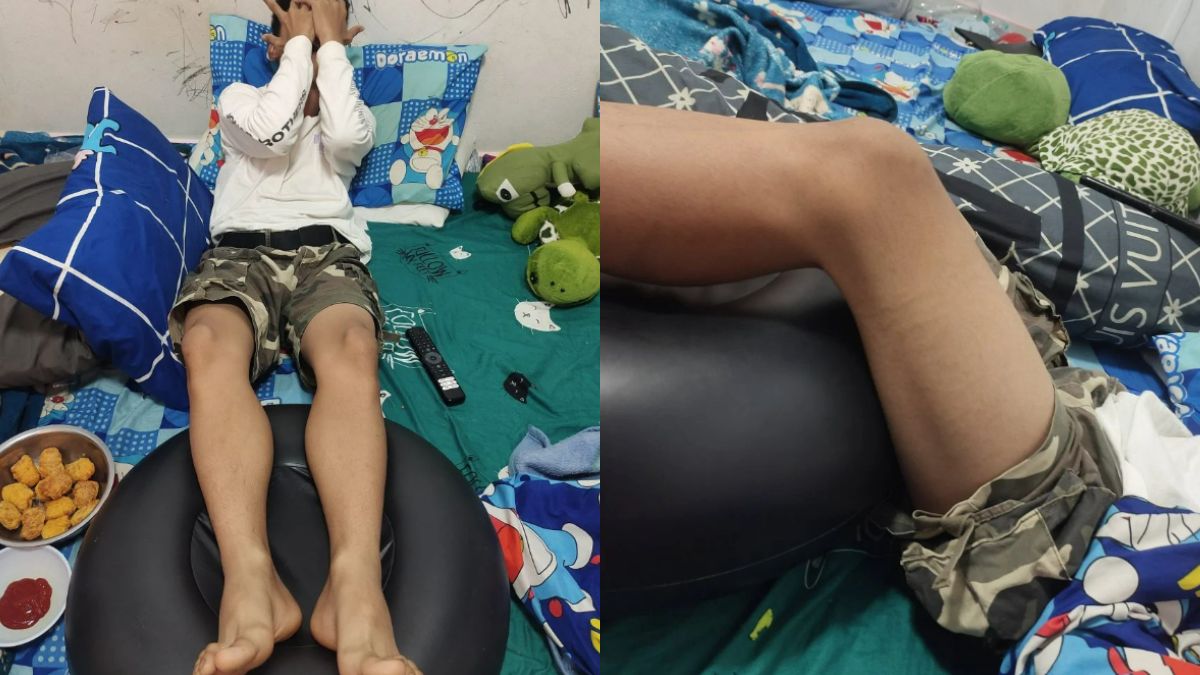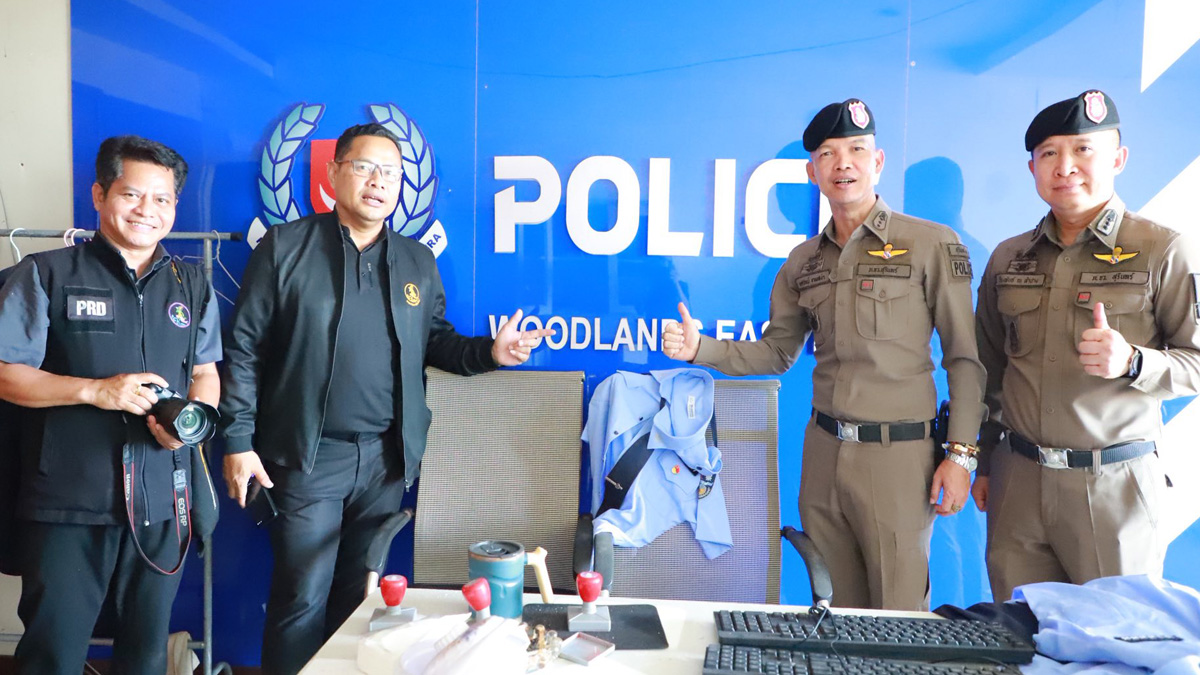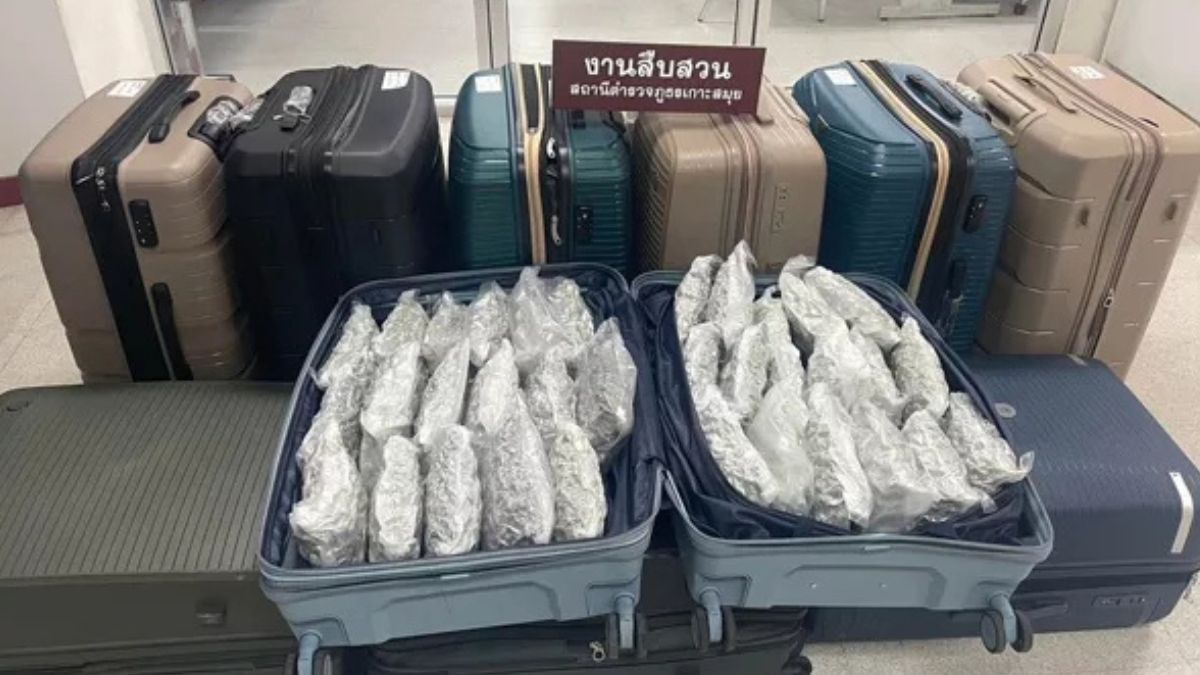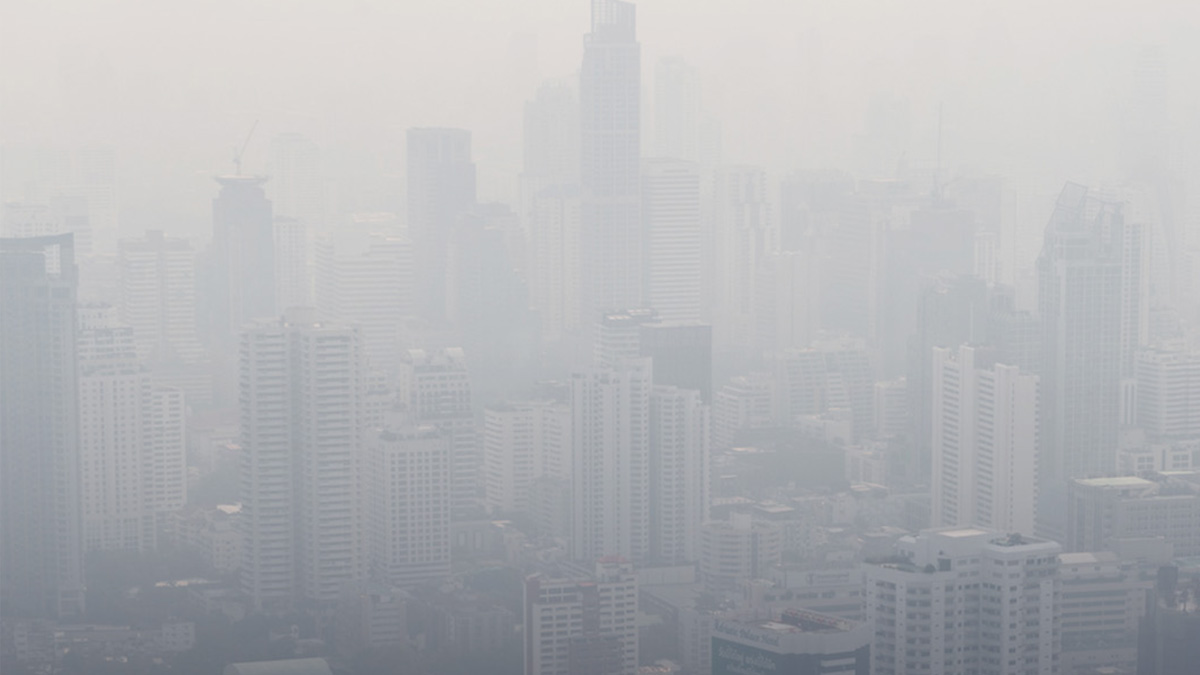Thai police reject abduction claims of Belarusian model, citing CCTV and immigration
Thai police have refuted claims that Belarusian model Vera Kravtsova was abducted and trafficked to Myanmar, presenting immigration records and CCTV footage showing her voluntary departure. This follows foreign media reports alleging her forced involvement in cyber scams and subsequent death.
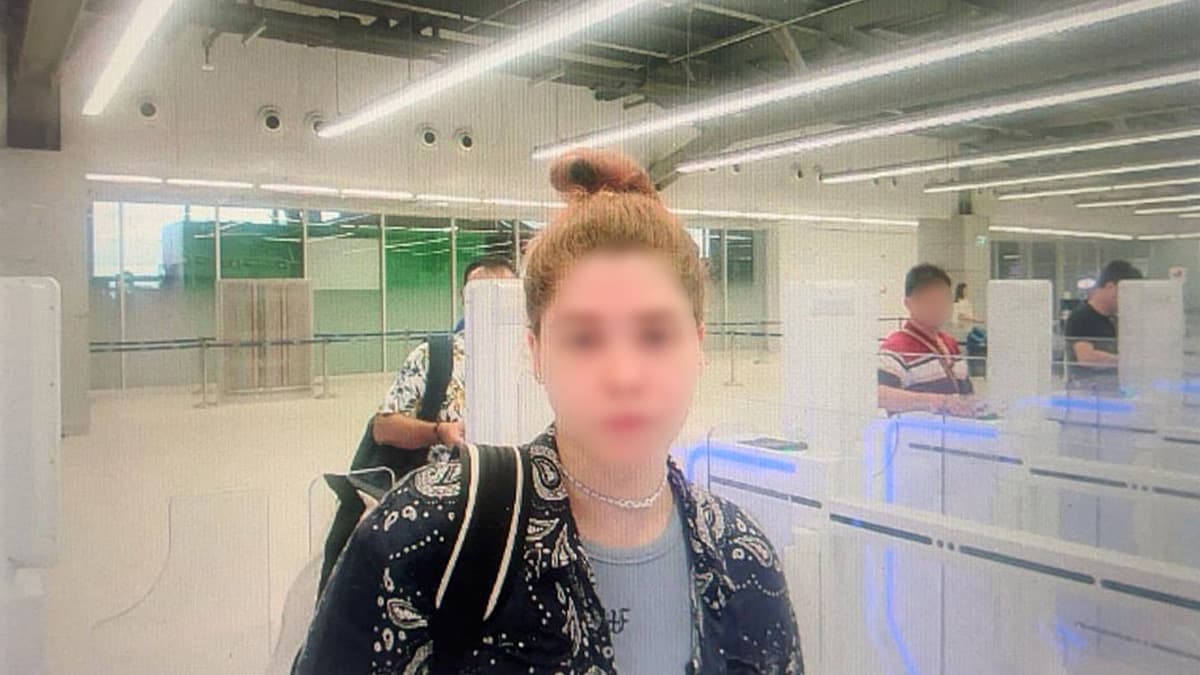
- Thai police refuted foreign reports claiming Belarusian model Vera Kravtsova was abducted and trafficked to Myanmar, releasing evidence of her voluntary departure.
- Ukrainian and British media alleged she was forced to work at a cyber scam centre before being killed, citing ransom demands and family communications.
- Thai authorities maintain their jurisdiction ended at her legal departure and reaffirm anti-trafficking efforts at borders.
Thai authorities have rejected allegations that Belarusian model Vera Kravtsova was abducted and trafficked through Thailand to Myanmar, insisting that immigration and surveillance records confirm her voluntary departure from the country.
At a press briefing on 21 October 2025, Police Major General Chengron Rimphadee, spokesperson for the Royal Thai Police, said the investigation was led under the supervision of Police Lieutenant General Phanumas Bunnyalak, Commissioner of the Immigration Bureau.
Kravtsova, 26, arrived in Thailand on 12 September 2025 and exited the country eight days later on 20 September via Thai Airways flight TG301 to Yangon, Myanmar. CCTV footage from Suvarnabhumi Airport shows her independently using the Automatic Border Control (ABC) system without signs of distress or coercion.
“There was no indication of force or abduction at the time of departure,” Chengron stated. “Any claims suggesting otherwise are not supported by the evidence we possess.”
Foreign media reports claim scam slavery and death
Despite these findings, Ukrainian National News reported on 16 October that Kravtsova had been coerced into working on “romance scams” in a cyber scam centre in Myanmar before being killed.
According to the Daily Mail, Kravtsova lost contact with her family in early October. Unidentified individuals later contacted the family, demanding a ransom of “half a million dollars”. When no payment was made, the family allegedly received a message stating, “We have already cremated the body,” and were warned: “Do not look for her anymore.”
Myanmar media sources claim a total of 9,337 foreign nationals working in cyber scam centres have been deported from Myanmar since 30 January 2025. A source within Myanmar’s police reportedly told local press that Kravtsova had been tricked by a criminal group pretending to be a modelling agency, then taken to northern Myanmar and sold into slavery.
Thai police have rejected these reports, clarifying that her departure was voluntary and lawful. Photographic and immigration records have been shared with the Belarusian Consulate in Thailand to assist diplomatic enquiries.
Rise in regional fears linked to cyber scams
The Kravtsova case adds to a wave of public concern over cross-border scam networks operating in Southeast Asia. Fears have intensified in recent years due to real-life incidents and fictional portrayals reflecting such crimes.
In January 2025, Chinese actor Wang Xing was reportedly abducted after entering Thailand and trafficked to a Myanmar-based cyber scam compound. The case drew intense media coverage and public backlash, particularly in China.
This followed the wide success of the 2023 Chinese film No More Bets, which depicted characters being deceived into travelling via Thailand only to be kidnapped and forced to work in brutal scam centres. The movie portrayed scenes of physical abuse and psychological manipulation, echoing real reports from scam victims.
The film’s popularity sparked a notable drop in Chinese tourism to Thailand, driven by fear of similar occurrences. Thai tourism authorities acknowledged the reputational damage and have since taken steps to reassure travellers of their safety.
Major General Chengron acknowledged the broader context of these anxieties: “We understand the public concern driven by such incidents and portrayals, but the reality on the ground in Thailand is that we have robust immigration and surveillance systems in place.”
Thailand’s anti-trafficking measures
Authorities highlighted Thailand’s extensive countermeasures against human trafficking and illegal transits to scam centres in neighbouring countries. These include airport interviews, mandatory hotel registration through the Thai Digital Accommodation Control (TDAC) system, and joint checkpoints along border regions, particularly in Tak Province.
Since January 2025, Thai immigration has denied entry to over 34,000 individuals assessed as high-risk based on travel patterns and documentation irregularities.
Police Major General Chaturaphat Phiromkaew, Commander of the Foreign Affairs Division, issued a separate public advisory urging vigilance when responding to overseas job offers. He warned against unverified contacts and called for immediate police reporting of suspicious recruitment activity.
“We are committed to protecting both Thai nationals and foreigners from exploitation by transnational criminal networks,” he stated.
Kravtsova, who had reportedly relocated to Saint Petersburg after university and worked as a freelance model, may have been vulnerable to such deceptive offers, according to foreign media. However, Thai authorities continue to assert that there is no evidence she was trafficked or abducted while in Thailand.


